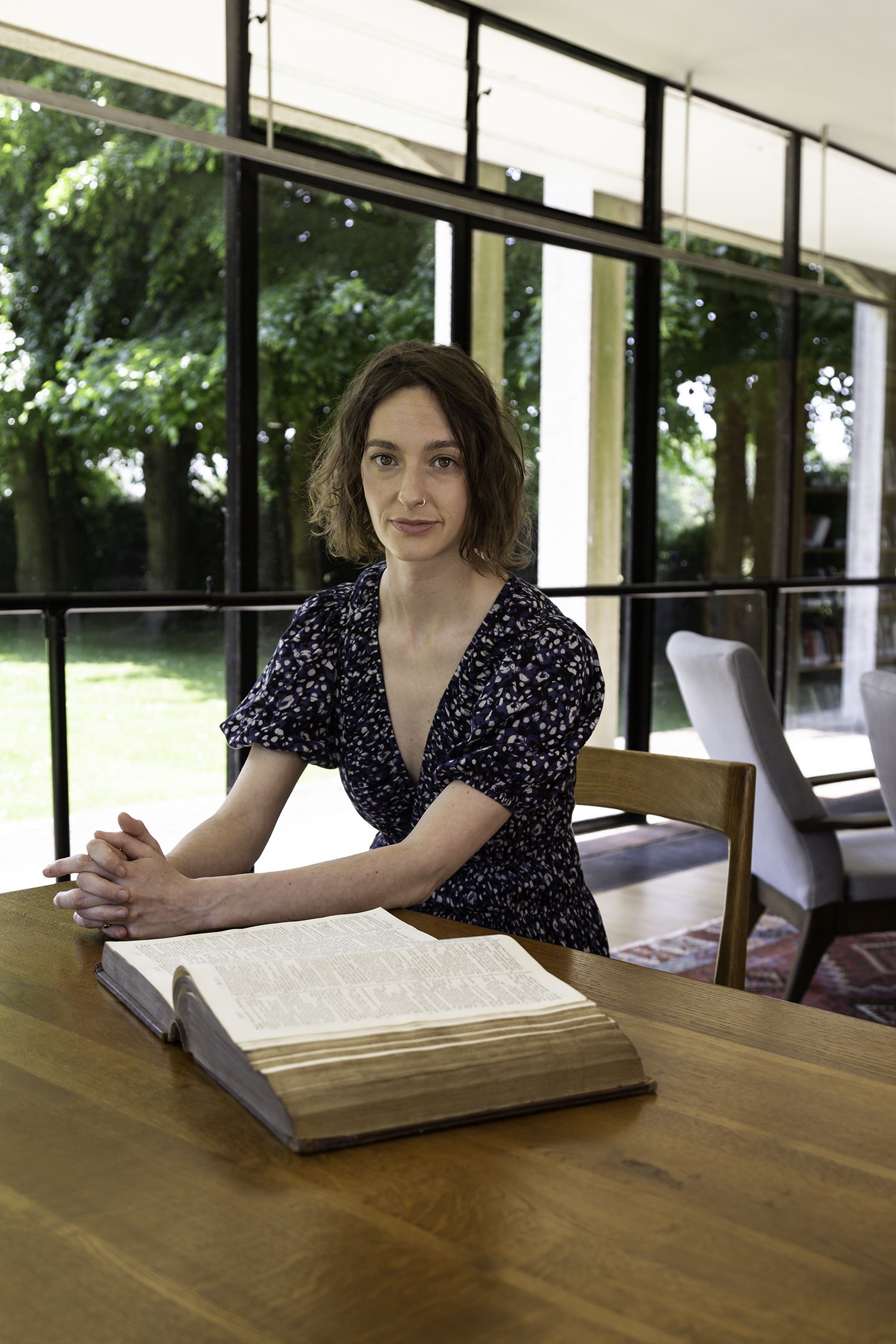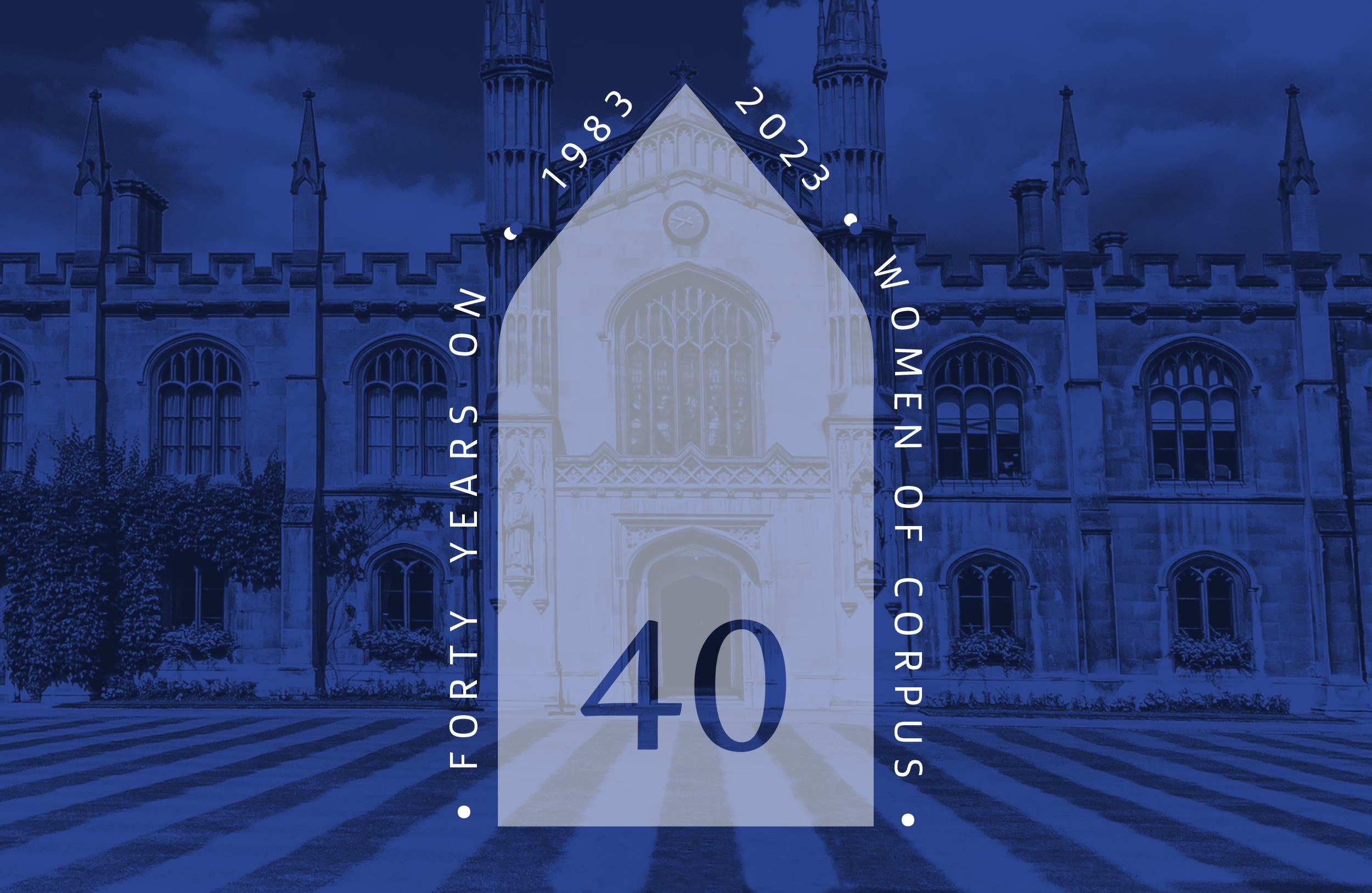Dr Eliza Haughton-Shaw
BA (Oxford) MLitt (Glasgow) PhD
ENGLISH

“ I selected the Leckhampton library for my portrait as it remains my favourite spot to work in College, especially at night-time or during summer afternoons when the view is punctuated by swimmers drifting back and forth from the pool at the end of the garden.
The object I chose is the most treasured book in my possession: a copy of Samuel Johnson’s Dictionary (1755). It is an incredible, as well as idiosyncratic, scholarly accomplishment and often more interesting to undergraduate students than they tend to expect. It shows us that even the most apparently neutral or disinterested catalogues are in fact wildly contingent, changeable and opinionated.”
Eliza is an Early-Career Research Fellow in Eighteenth-Century and Romantic Literature. She was educated at a comprehensive school in York and went from there to complete her BA at St Anne’s College, Oxford in 2015, and her MLitt at the University of Glasgow in 2016. She completed her AHRC-funded PhD in English Literature at King’s College, Cambridge in 2021.
Eliza works primarily on Romanticism and the long eighteenth century, combining interests in literature with Enlightenment epistemology and empirical and psychoanalytic psychology. Her doctoral thesis drew on recent academic interest in eccentric character, addressing the figure of the eccentric across a variety of literary case studies, from Sterne through to Dickens, and combining an interest in character with discussions of how form and genre contribute to eccentricity as a stylistic device.
Her research responds to the emergence of eccentricity as a psychological concept in the wake of empiricism, rooting itself in a Humean context where the pains of isolated thinking can only be solved through the solace of sociability. It argues that eccentricity offered a countervailing weight to the demands of collectivity where, despite the eccentric’s inaccessibility to full sympathy or understanding, he is repeatedly guaranteed immunity from the trauma or pain elsewhere associated with social, cognitive, or emotional estrangement. She is currently working on a monograph which builds on the work of her doctoral thesis, and focuses on eccentricity and the novel.
Eliza is also working on a new project which thinks about the role played by association in the small-scale and improvised forms pioneered by the Romantic essayists: Hazlitt, Lamb, De Quincey, and the Romantic Modernist, Woolf. This is a literary study of what happens in essays, but it brings together philosophical concerns with psychological ones, understanding association as a crucial term across disciplines. While ‘association’ is now closely linked with Freud’s technique of ‘free association’, which invents a new context for a foundational idea, this project charts its importance for the literature, aesthetics, and philosophy of the eighteenth and nineteenth century. It intertwines readings of individual writers with a study of the concepts evoked by Romantic association — such as quotation, rewriting and rereading — which complicate divisions between past and present selves, private and shared realities, or first- and second-hand experiences.
